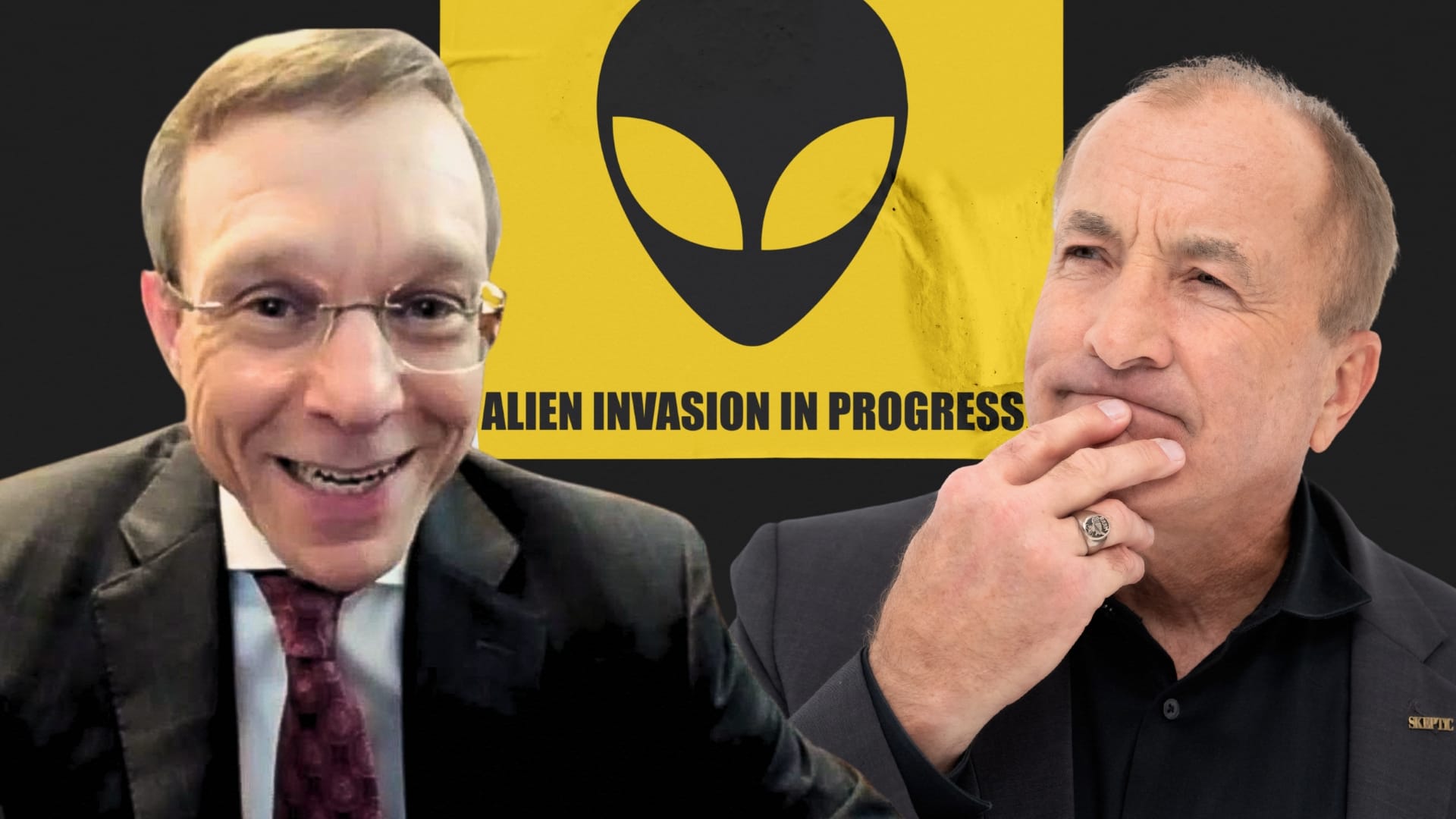Harvard Astronomer Takes Up Skeptic Publisher’s $1,000 Bet on Alien Disclosure by 2030

In the long tradition of scientific wagers, Skeptic magazine publisher and historian of science Dr. Michael Shermer has issued a $1000 bet that…
Discovery or disclosure of alien visitation to Earth in the form of UFOs, UAPs, or any other technological artifact or alien biological form, as confirmed by major scientific institutions and government agencies, will not happen by December 31, 02030.
Taking him up on that challenge is Harvard astronomer and Director of the Galileo Project Dr. Avi Loeb. The wager is placed through the Long Now Foundation’s Long Bets program (“an arena for competitive, accountable predictions”), which adds a 0 at the front of all dates on a 10,000 year calendar (“to foster better long-term thinking”), in keeping with their Clock of the Long Now, being built in Texas and designed to tick for 10,000 years. Details of the Shermer-Loeb wager may be found here.
Whoever wins, the $1000 stakes will be donated to the Galileo Project Foundation. Here are the terms for deciding who wins:
By Dec 31st 02030, at least two of these three scientific organizations—NASA, the National Science Foundation, and the American Astronomical Society—will affirm that discovery of extraterrestrial intelligence in the form of UAPs, UFOs, or any other interstellar objects that are determined to be ETI technological in nature, or any alien biological life form found here on Earth, has been made.
Here is Dr. Loeb’s argument:
The search for technological artifacts has just started in earnest in 2025 with the discovery of the anomalous interstellar object 3I/ATLAS, the launch of the Rubin Observatory and the construction of three Galileo Project Observatories.
Given that there are billions of Earth-Sun analogs in the Milky-Way galaxy—most of which are billions of years older than the solar system, and that it will take less than a billion years for our Voyager spacecraft to cross the Milky-Way disk, we must engage in the scientific search for extraterrestrial technological artifacts.
It is better to be an optimist because life is sometimes a self-fulfilling prophecy. This is why I am engaged in the search with the hope that we will find a partner on our blind date with interstellar objects.
Here is Dr. Shermer’s argument:
Since the founding of the Skeptics Society and Skeptic magazine in 1992, I have been documenting predictions by UFOlogists that discovery or disclosure of alien visitation to Earth is coming any day now.
Believers appear in the media boldly predicting that by the end of the year we will have proof of alien contact—33 years later I’m still waiting for said proof. More recently, proponents of UAPs as alien spacecraft have appeared before the U.S. Congress, confidently claiming that they know people who have seen and even touched aliens and/or their spaceships, back-engineered their technologies, and even communicated with the aliens.
Yet when pushed for evidence, they always demur, saying that it’s “classified,” “top-secret,” that Men-in-Black threatened them into silence, that their careers and even their lives are at stake if they disclose said evidence, that they could only reveal the evidence in a “SCIF” (Sensitive Compartmented Information Facility) but not in Congress, and that many people in the U.S. government, CIA, FBI, NSA, etc. (never named) have this information and evidence of alien visitation.
The purpose of this bet, in keeping with the rules of Long Bets and the philosophy of the Long Now Foundation, is to reveal the actual confidence of UFO/UAP alien believers by getting them to put their money where their beliefs appear to be. You say we will have alien disclosure by the end of the year? O-kay, let's place a wager on that prediction. I say it won’t happen.
The Long Bets program was started in 2003 by Stewart Brand and Kevin Kelly, and is part of a long tradition of scientific wagers dating back at least to 1870 when Alfred Russel Wallace, co-discoverer with Charles Darwin of natural selection, accepted a £500 wager (a workingman’s wages for one year) placed by flat-Earther John Hampden that scientists could not prove that the Earth is round.
Wallace proved it by demonstrating same-height poles placed at even intervals along a six-mile stretch of the Old Bedford Canal (north of London) appeared through a telescope lower by the exact “amount calculated from the known dimensions of the earth.”
Unfortunately, Wallace had to take Hampden to court to collect his winnings. Thus, it is important that such wagers be professionally adjudicated by neutral referees. Other wagers include:
- In 1975, cosmologist Kip Thorne bet cosmologist Stephen Hawking that Cygnus X-1 was a black hole. Thorne won.
- In 1980, biologist Paul Ehrlich bet economist Julian Simon that the price of a portfolio of five mineral commodities (copper, chromium, nickel, tin, and tungsten) would rise in price over the next decade. Simon won.
- In 1998, neuroscientist Christof Koch bet philosopher David Chalmers that the Hard Problem of Consciousness (a term coined by Chalmers) would be solved in 25 years. Chalmers won.
- In 2017, astronomer Martin Rees bet psychologist Steven Pinker that “a bioterror or bioerror will lead to one million casualties in a single event within a six-month period starting no later than December 31, 02020.” Since the lab-leak hypothesis for Covid-19 (bioerror) was never proven, Pinker was declared the winner on the Long Bets platform.
If Loeb wins the bet, it will represent what would arguably be the greatest discovery in human history, namely that we are not alone in the universe.
If Shermer wins the bet, it does not mean that we are the only intelligence in the cosmos, only that claims of contact are likely greatly exaggerated and that we need to keep searching for the truth about extraterrestrial intelligence.